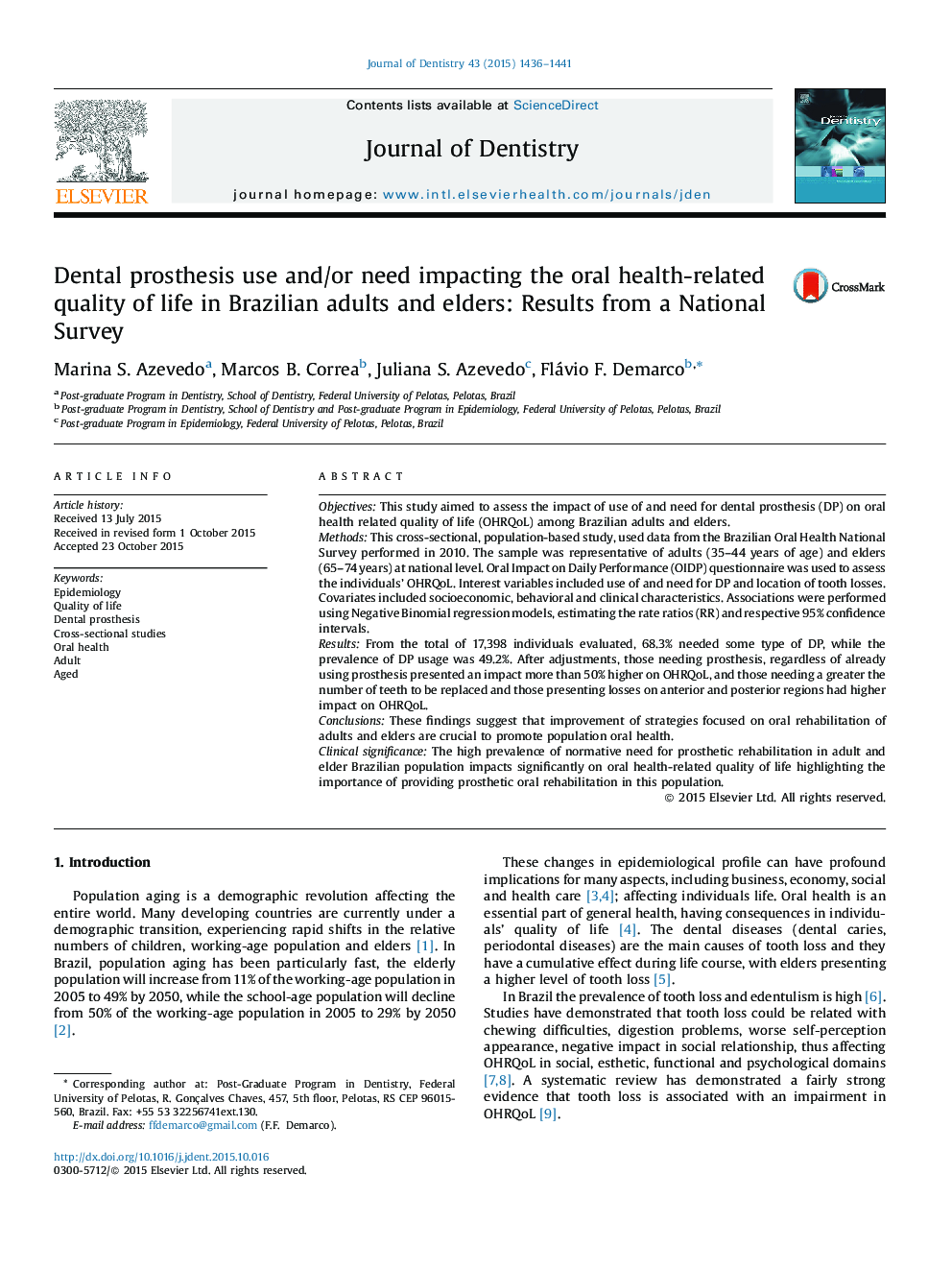| Article ID | Journal | Published Year | Pages | File Type |
|---|---|---|---|---|
| 6053280 | Journal of Dentistry | 2015 | 6 Pages |
ObjectivesThis study aimed to assess the impact of use of and need for dental prosthesis (DP) on oral health related quality of life (OHRQoL) among Brazilian adults and elders.MethodsThis cross-sectional, population-based study, used data from the Brazilian Oral Health National Survey performed in 2010. The sample was representative of adults (35-44 years of age) and elders (65-74 years) at national level. Oral Impact on Daily Performance (OIDP) questionnaire was used to assess the individuals' OHRQoL. Interest variables included use of and need for DP and location of tooth losses. Covariates included socioeconomic, behavioral and clinical characteristics. Associations were performed using Negative Binomial regression models, estimating the rate ratios (RR) and respective 95% confidence intervals.ResultsFrom the total of 17,398 individuals evaluated, 68.3% needed some type of DP, while the prevalence of DP usage was 49.2%. After adjustments, those needing prosthesis, regardless of already using prosthesis presented an impact more than 50% higher on OHRQoL, and those needing a greater the number of teeth to be replaced and those presenting losses on anterior and posterior regions had higher impact on OHRQoL.ConclusionsThese findings suggest that improvement of strategies focused on oral rehabilitation of adults and elders are crucial to promote population oral health.Clinical significanceThe high prevalence of normative need for prosthetic rehabilitation in adult and elder Brazilian population impacts significantly on oral health-related quality of life highlighting the importance of providing prosthetic oral rehabilitation in this population.
